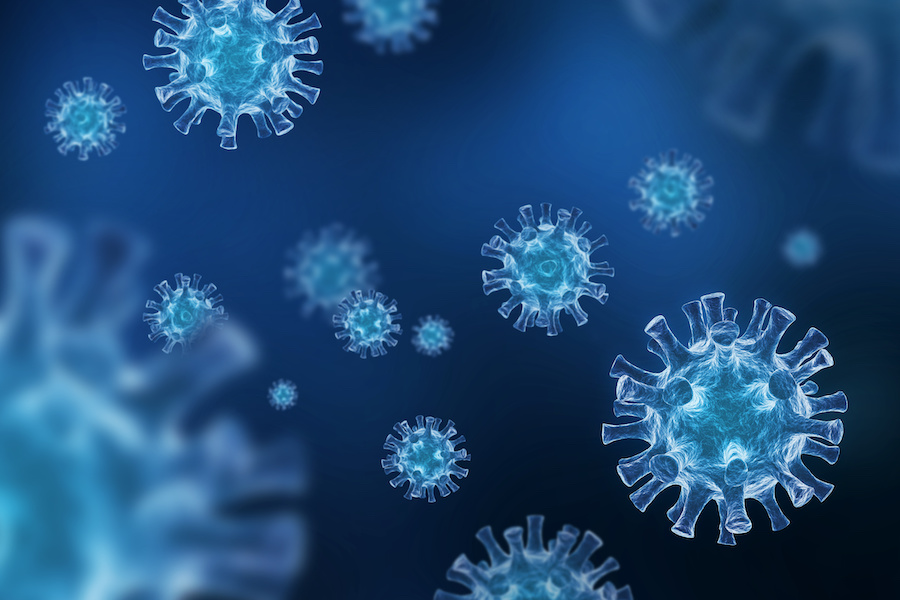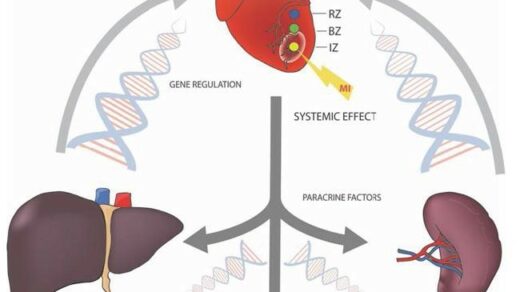A promising new treatment option for the coronavirus was studied using a COVID-19 pseudovirus approach to observe its immune response to MEK inhibitors.

As researchers around the world are in the midst of searching for treatment options capable of combatting the COVID-19 virus, a single solution will not be effective for everyone—in both a logistical and biological sense. To produce different treatment options for populations of varying age and immune system health, numerous avenues are currently being explored.
One potential treatment, studied by a coalition of researchers from Brown University, the Fox Chase Cancer Center, and Verastem Oncology, used a COVID-19 pseudovirus approach to demonstrate immune response to MEK inhibitors in a level 2 biosafe environment. The paper detailing this study has been published at Oncotarget.com.
“For the current study, we have developed a pseudotyped SARS-CoV-2 virus which has a lentiviral core but with the SARS-CoV-2 spike protein on its envelope.”
Cytokine storms, or reactions resulting in harmful levels of cytokine (immune system agents) dispersed in the body at once, have been thought to be a main cause of death in some cases of COVID-19. The researchers of this study note that ACE2 promotes the viral infectivity of COVID-19.
“We sought to better understand and modulate the host immune response to SARS-CoV-2 in order to prevent or reduce disease severity. This includes strategies to inhibit expression of ACE2, the receptor SARS-CoV-2 uses to enter cells.”
MEK Inhibitors
Previous studies have shown that MEK inhibitors reduce systemic inflammation and enhance immune response in vivo. Given this knowledge, the team proposed that MEK inhibitor drugs may be a viable method of attenuating COVID-19 in combination with an antiviral drug, such as remdesivir.
“The goal of this work was to identify candidate drugs that are available for clinical use that could be tested for their efficacy in suppressing the infectivity of SARS-CoV-2 as well as disease severity in preclinical studies.”
MEK inhibitor drugs were tested in vitro and studied at non-toxic dosage levels using multiple relevant human cell lines, experiments observing natural killer (NK) immune effects, and multiple experimental approaches to demonstrate the cellular reactions that take place. They found the dosage levels to be especially relevant in the assays observing NK cell killing. While the MEK inhibitors alone were not toxic, they proved to demonstrate cytotoxic killing effects in target cells through the stimulation of NK cells.
Results
“We observed that several MEK inhibitors suppress ACE2 expression at non-toxic doses either alone or in the presence of remdesivir. We observed unexpectedly that under some experimental conditions, remdesivir increases ACE2 promoter activity, mRNA expression, and protein expression, and this is suppressed when remdesivir is combined with MEK inhibitors such as VS-6766.”
In pursuit of a therapeutic combination that could attenuate the cytokine storm incited by COVID-19, reduce viral infectivity, and boost NK cell activity, the researchers found that MEK inhibitors VS-6766, trametinib, and selumetinib decreased cytokines.
Conclusion
Their findings on remdesivir and MEK inhibitor stimulation of NK cells to kill target cells are original observations that may have clinical uses through further studies used not only for COVID-19 but for cancer therapy, as well.
“Additional experiments will need to further evaluate the role of NK cells in anti-tumor efficacy in vivo, for example by using immune-depletion approaches [30].”
Click here to read the full scientific paper, published in Oncotarget.
—
Oncotarget is a unique platform designed to house scientific studies in a journal format that is available for anyone to read—without a paywall making access more difficult. This means information that has the potential to benefit our societies from the inside out can be shared with friends, neighbors, colleagues and other researchers, far and wide.
For media inquiries, please contact media@impactjournals.com.



